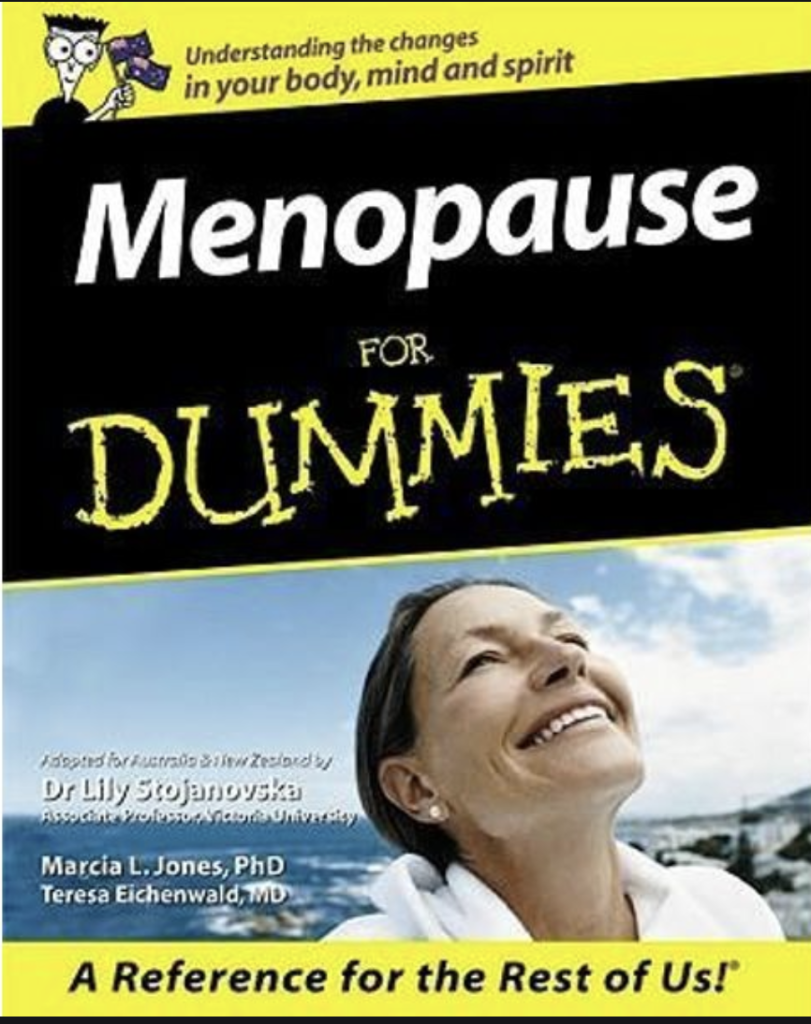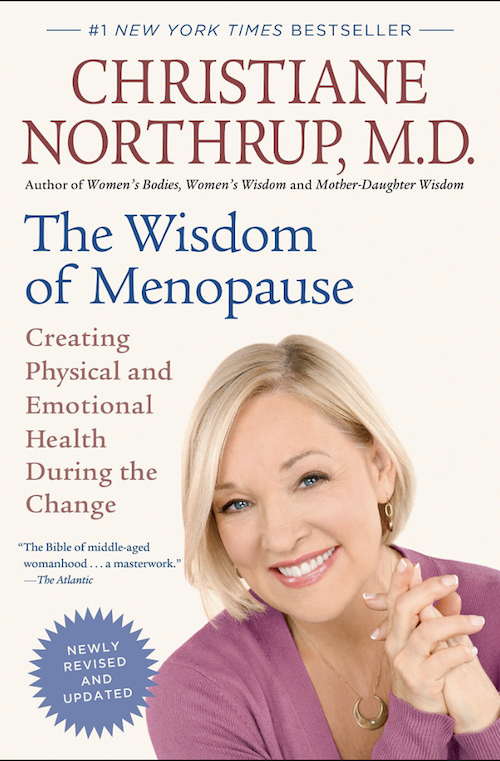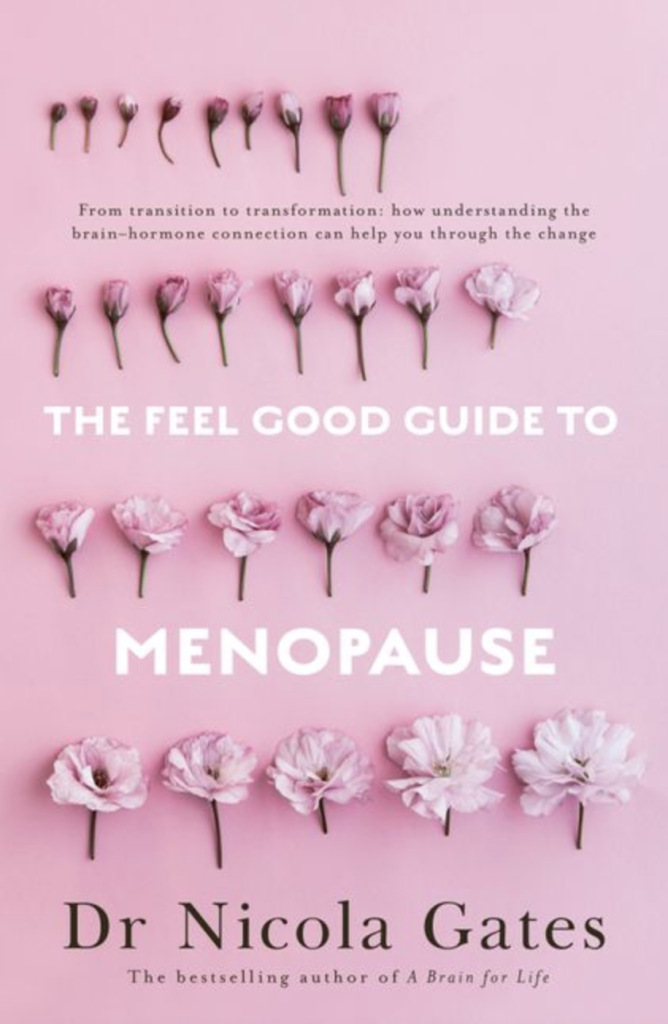3 Extraordinary Books About Menopause

Books about menopause.
They’re one of our greatest resources.
Even in the digital age books stand tall. While some people may have turned to eBooks and Kindle, for many nothing takes the place of the page-turning sound of a ‘real’ book.
Whatever form you choose for your information gathering we’ve shared three comprehensive books about menopause that may interest you.
Book 1: Menopause For Dummies
By Marcia L Jones, PhD and Teresa Eichenwald, MD
Adapted for Australia & New Zealand by Dr Lily Stojanovska, Associate Professor

The ‘For Dummies’ series of books are iconic in the book world. They’re informative, non-intimidating, and written in an easy-to-understand way. This one’s no different and there’s a ton of valuable information within the pages.
Amazon says: “In plain English, it [the book] explains the role menopause plays in a variety of common health problems. These include osteoporosis, stroke, and heart disease. It walks you through proven measures for minimising your risk of developing complications including diet and exercise, stress management, and other techniques.
Menopause For Dummies arms you with authoritative, up-to-the-minute coverage of:
- Premenopause how to identify it and what it means
- The stages of menopause
- How menopause can affect your body, emotions, and libido
- The latest facts about hormone replacement therapy
- The pros and cons of various alternative treatments
- The best ways of handling hot flashes
- Easing symptoms with diet and exercise
- Preventing bone loss
- Helpful lifestyle changes
A quote from Menopause For Dummies:
“Exercise regularly. One out of every ten women who exercise regularly experiences hot flushes. Of women who don’t exercise, one out of every three experience hot flushes.”
Book 2: The Wisdom of Menopause: Creating Physical and Emotional Health During the Change
By Dr Christiane Northrup, MD

Dr Christiane Northrup is a much-loved personality in the world of women’s health. She was actually one of my lecturers during my health coach training. Dr Northrup is incredibly warm, personable and passionate about her work. This book is a #1 New York Times bestseller with well over a million women around the globe using it as a tool. Dr Northrup focuses on a new version of midlife: finding joy, remaining sexy and taking charge. As Book Depository says: “In Dr Northrup’s view ‘the change’ is not a collection of physical symptoms to be fixed, but a mind-body revolution that brings the greatest opportunity for growth since adolescence. The choices a woman makes now – from the quality of her relationships to the quality of her diet – have the power to secure vibrant health and wellbeing for the rest of her life.”
Dr Northrup covers midlife, the empty nest syndrome, how menopause affects thyroid function, brain, sleep, mood, memory, cardiovascular disease, osteoporosis and things like acne and wrinkles and so much more.
The Wisdom of Menopause has been completely revised and updated with the latest research and medical advances and includes a new section on sex after 50.
A quote from The Wisdom of Menopause:
“In the year or two before I actually started to skip periods, I began to experience an increasingly common feeling of irritability whenever my work was interrupted or I had to contend with a co-worker or employee who was not as committed to accomplishing the job as I was.”
Book 3: The Feel Good Guide to Menopause
by Dr Nicola Gates

The Feel Good Guide to Menopause is written by Australian neuropsychologist and psychologist to help us navigate perimenopause, menopause and post-menopause by understanding the brain-hormone connection.
This is particularly important because we might be capable of being head honchos in big business these days but knowledge of the menopausal journey and how it impacts us mentally is still pretty thin on the ground. There’s no denying this life phase can impact not only our health, our relationships, our careers, how we function in the world and but also our emotions and thought processes and this book explains the connection between our bodies and our brain.
Dr Gates discovered the need for this when she was catapulted into exploring menopause and its repercussions when she faced a hysterectomy. As it turned out she was left with her ovaries so wasn’t thrown into surgical menopause but life threw another curveball when she was diagnosed with breast cancer soon after.
The five key messages in the book are:
- First, the brain changes during the transition as it adapts to a different, less potent form of estrogen, but it does adapt.
- Second, there can be an impact on mental health, but that doesn’t mean these changes are permanent or indicate a mental illness.
- Third, a positive attitude and a proactive approach will make a profound difference to your menopause experience and the adoption of a healthy lifestyle and an optimistic mindstyle will help you thrive.
- Fourth, and this is a caution, menopause is a big change, but it might not be the cause of all your difficulties. There are multiple other factors in play related to age, life stage, relationship status and environment that may be unhelpful and there may be something else in your life that needs to change.
- Lastly, the guarantee. Menopause will liberate you from cycling sex hormones and herald the start of your third life. The objective here is to ensure that life is a good one.
A quote from The Feel Good Guide To Menopause:
“In my clinical practice I notice more women in their mid-forties to early fifties coming in with concerns for their memory and ‘brain fog’, and others with anxiety, stress and depression. Some women who have mothers with dementia are specifically fearful they too might have early dementia.”
Buy it here:
Happy reading! If you do purchase one of these books we’d love you to share your feedback with the rest of the community.
Similarly, if you have a book you’d like to share please let us know here.
If you’d like to learn more, take a look at our list of resources, here.






